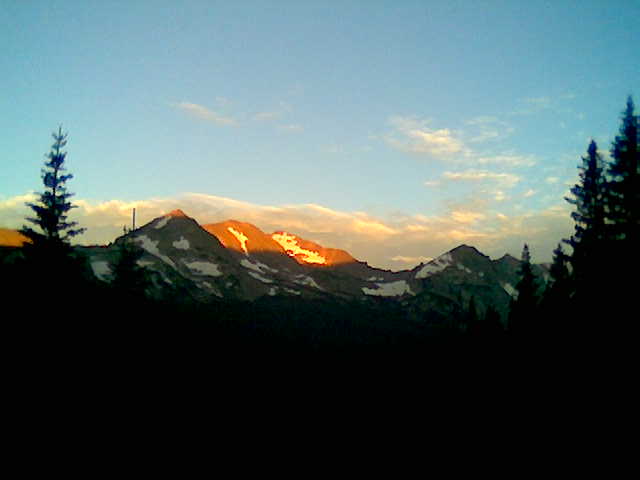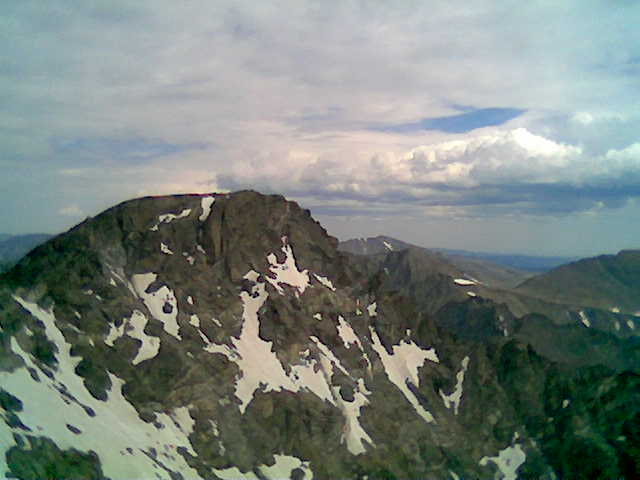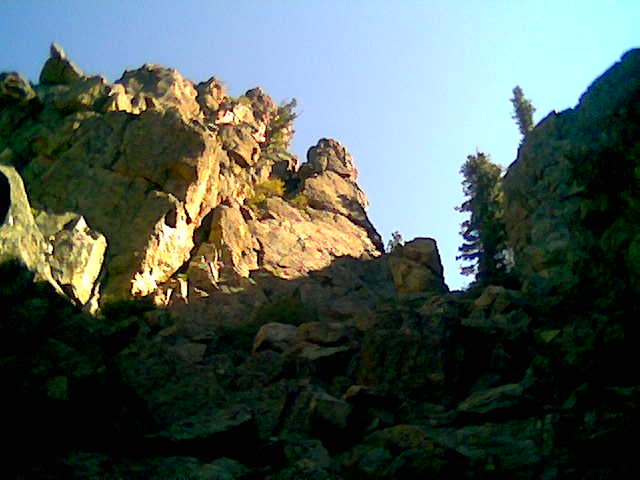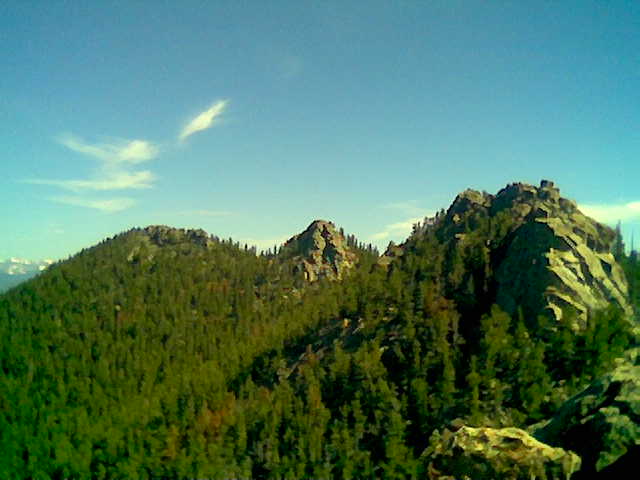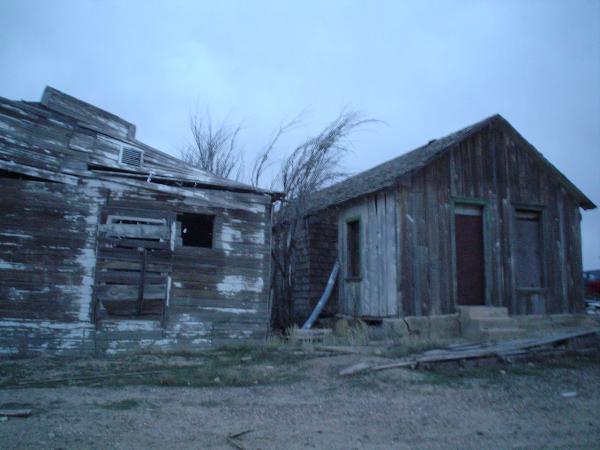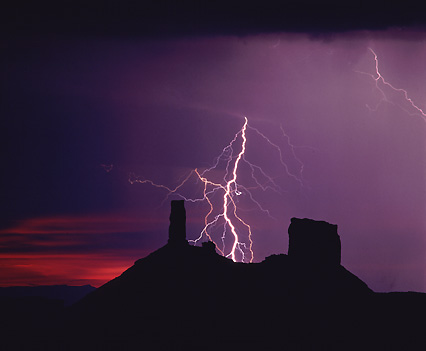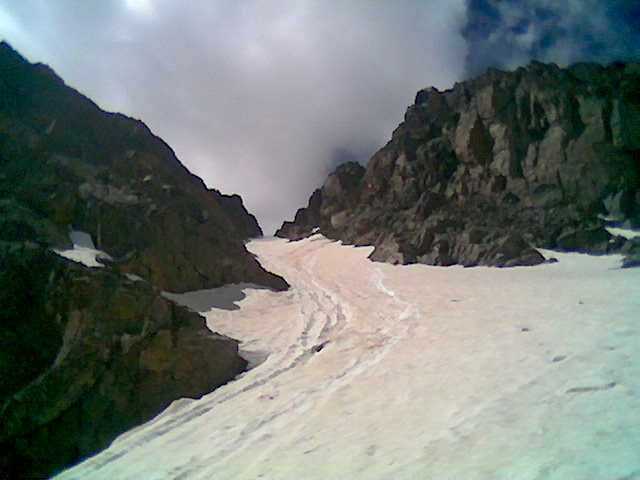I was going through the inbox today and found this in a puddle:
"
But I'm bothering to reply here because I was thinking that as a leftist you might want to consider that only with VSTs/plugins is there finally the possibility for everyone to write, record their own music. That's a good thing. And even though they don't quite sound as good (yet), as a leftist you using all that hardware is like hanging out at the country club all day playing golf. Personally I haven't bought hardware yet because I feel guilty that I can (finally) afford to when so many others can't. I'd much rather try to prove it can be done with free/cheap VSTs. That you only use hardware is fine. But maybe you should stop putting others down? You do come across as disgusted by people putting out what you consider to be inferior music. It comes across kind of ugly and elitist."The person who wrote it is actually a cool person who does music... but the pointed attacks really fucking pissed me off for their ignorance.... after scars, after countless hours spent booking and driving and touring, countless wasted years at jobs I hate to make music possible... after living in a fucking car last month while working full time... and some internet guy who has never met me calls me the country club of golf of industrial music...
So I wrote a hardware manifesto and made it public. Because I couldn't have this inside of me. Had to get it out.
"Let us also not forget that the upper layer of the bourgeois third estate passed its cultural apprenticeship under the roof of feudal society; that while still within the womb of feudal society it surpassed the old ruling estates culturally and became the instigator of culture before it came into power. It is different with the proletariat..The proletariat is forced to take power before it has appropriated the fundamental elements of bourgeois culture... ‘Proletarian culture,’ “proletarian art,” etc., in five cases out of ten... represents a jumble of concepts and words out of which one can make neither head nor tail."-L Trotsky
Did you ever read any of those debates (
1,
2) about art in the first few years of the Russian revolution, specifically the 'proletarian culture' movement perhaps? This email reminds me of that... Basically, even though the first few years of the Russian Revolution coincided with civil war, intervention, blockade, and economic collapse, there was the space for some interesting artistic developments and theorizing.
Basically, there were people who said it's now time for 'proletarian art'... we've taken over the publishers and now can distribute the works of workers, not just the well to do writers of the preceding ruling classes. Some of the work they got out was interesting and very origional. But a lot of it wasn't too great. Just because someone is a worker, though they may have had interesting life experiences and perspectives, it doesn't mean they're inherently any better at expressing themselves than anyone else. In fact material reality stacks the cards starkly against this. The representatives of the former ruling classes had years of education, leisure time, and access to universities; during which they were able to assimilate and reflect upon the past artistic, literary, and scientific achievements of all preceding generations. They had years of writing essays and articles and teacher, peer, and professional review to hone in on their styles. Pushkin didn't write better than, say, the guy at Burger King taking your order, because God necessarily enamored him with better genetics. If Pushkin had to work at Burger King to keep a roof over his head he probably wouldn't have had the access to those influences which really opened up and began his writing career at all...
A materialist analysis recognizes that not because of any racial or genetic or otherwise unalterable difference, but because of a class difference (i.e., poor education and having to work long hours and having to privately deal with child raising which makes extra time for art or reading difficult), many new worker-writers approached the publishers with many less than stellar works. Some wished to ignore this and simply romanticized the various gnarled, dry, acidic fruits of such disadvantaged would be writers (not that there weren't of course notable exceptions, which there were). But I feel like anyone who tells a newer musician today that their first self release is "great", rather than really thinking about its production and composition and offering truly useful criticisms that will allow them to really develop more, is really performing the same disservice as those old Russian lionizers of "proletarian art".
With today's technology, notably software synths and cheaper PC prices that have allowed many people who ordinarily wouldn't have had the chance (or would have had to suck major producer dick and dumb down their music to get one) now actually can get their music on a cd or online and get people to hear it. That is great. You can work at Target, or as a barista, or a waiter, and produce good sounding music in your home, and start finding ways yourself to distribute it. That means bad things for the big label owners who are just looking for the next Britney Spears, but great things for actual music lovers.
However, just because you can do something fast, or on the cheap, doesn't mean it's going to be great. To explain this I will use a cinematic analogy:
When you make a film, you have two things that you can control. You can control how you edit the celluloid that's in front of you, and you can control what quality of shots you have on the celluloid in front of you. Contrast for a minute something like 2001: A Space Oddessy, and your favorite fast paced music video. The former is a great piece of art because, yes, the story and plot is interesting, but- every image you see is a spectacularly epic construction where the creator pulled no punches to create great sets, great costumes, great effects, cast great actors, etc.. etc.... These are great shots to watch. You can take most any frame out of that whole film and put it on a poster or a t shirt and you will have a great poster or t shirt. It is very hard to say the same about any frame picked at random from any music video.
Your music video may also be a great piece of art, but not necessarily because of the framing, acting, set construction, costumes, writing, or special effects. What really grabs you is the way the images are edited, i.e., juxtaposed- often quite rapidly. Quality of film and shot is usually an afterthought, but the interposition of context between many different images all interacting and splicing themselves in between each other creates its new, fascinating (attention grabbing), synthesis-meaning. That is also a great piece of art.
With home produced music, everyone can control this latter aspect. Everyone can be an 'editor', an arranger of notes. Usually, these are other people's sounds- Reason samples, drum and synth samples downloaded, or perhaps a softsynth whose spectrum and timbre is ultimately limited by the purely digital domain to which it is confined. Yes, it is a fantastic innovation I strongly support, that anyone can begin here... anyone can start learning about music, not in a dry, sterile, intimidating music-class way, but in a personal way, with personally appealing sounds and styles.
However, this opportunity carries with it a double-edge. When the 'composer' hits record; sound quality is limited and predetermined, and complexity/originality of technique, can be anything. See Johnny Depp's great acting in "Ed Wood" for an example of how only going with random bad material (stock footage, bad actors, bad sets, bad props, etc.) you are given makes a so-so editor's chance of producing something truely great quite impossible. That is an extreme example, but the principle is applicable more broadly. There is only so much you can accomplish when the "stock footage" (samples, soft synths, digital nature of computer circuitry) you possess is of a fixed and limited quality.
Two other areas are also jeopardized: live performance, and the development of the composer's own skill and technique. Live performance suffers because the writer will use visual midi sequencing correction to be able to write complex, 'flawless' parts, with no missed notes and the perfect attack on every key. These parts don't need to be practiced over and over (as they would be for a professional pianist in anticipation of a performance or recording) before they are recorded. This leaves the artist with music he will never be able to perform live. To get around this he might just play a few harmony parts, which generally require less energy or technique and thus deliver a less dramatic and impressive performance (there is a reason the spotlight is always on the solo of the 1st violin chair, who stands... second and third violin sections are relegated to the darker, amorphous mass of an orchestra's mid section). Or he might just improvise mush over the song which is just played back in its entirety. Or he might just stand in front of a laptop and sing without any band performance at all which may sound good but which is hardly interesting to watch (for ex, see my recent review of the
Unter Null/CAT tour).
With regards to technique, if you have very little familiarity with the piano, but you just play a few notes quickly and they sound neat, so you sequence those, loop them, and hit record, in your rush to produce something fast you're attempting to 'skip over' the process of really learning your instrument, finding out different chords and scales, and training your fingers to converse fluently and naturally with them in their own language. This tendency results in a retardation of the composers' skill level, as well as a stunted conceptual growth in the ability to forsee and really *design* a song, before it is recorded, through the knowledge of familiar notes, chords, scales, and progressions. The product can at times be fresh- as in the way one who has not been taught over years that there is a certain way things must be played, and who finds it difficult to break out of this and discover new territory- but it is of little doubt that one who truely learns an instrument before attempting to record it will be able to compose things that one who doesn't know the instrument would never in their own brief recording session be capable of coming up with.
Ultimately, this level is thuroughly sophmoric. It's purpose is to raise the question of mastery. If you've ever thrown a net into the ocean and drawn up a few small fish, you then ask yourself, "What could I draw up if I really studied and learned where the fish like to live, and how to best throw the net, and what nets are right for each kind of fish?" You may be the one asking this question in a bedroom studio or on the seashore. The one who truly knows the answer is either the president of a multimillion dollar fishery, or a producer who sells thousands of records. Cast at random... or start to take things a bit more seriously...
It is interesting to note that the greatest theoreticians of editing (rapid cuts and dialectical context-synthesis) as a worthy film art of its own accord, came from the Soviet Union in the 1920s. I am speaking here of course of Eisenstien and Pudhovkin. Of course in the context it makes perfect sense that such an economically desolate soil would provide the terroir from which the theoretical depreciation of great sets, great actors, great shots, great film quality, great dialogue, and great plot (need we list, great budgets?) would arise. The Russian directors put all their thought and labor into editing because they had no budget for lots and lots of long shots, or great actors, or great writing, or great sets, or epic multi-location shooting, or any of the above.
A great example of this is the brief short "Man With A Movie Camera". Basically, a guy goes around town with a movie camera and films ordinary people, trains, markets, trucks, buildings, movements, himself; just what is around him. There is no use of (or money for!) "sets", or "actors", or "scripts". However, the film itself is a very engaging piece of art. The editing is fast and quite interesting, just like a music video. The Russians took the one thing they had left which they could control, and put all their thought and energy into it. For that reason, even though the rest of their resources may have been of questionable quality, they were able to create great art.
Our own contemporary "new-composers", often putting themselves through school, working low paying "new economy" jobs, and picking up Reason, Cubase, a Microkorg, a Behringer mixer and some M-Audio monitors in between loan payments and rent have re-discovered this principle. If you are familiar with laptop noise shows you'll instantly recognize the evident strengths, and weaknesses, of this approach.
Of course Russian societal and artistic development by the late 20s and for the next several decades was scalded and disfigured by a series of human disasters on par with the pestilence of Christian mythologies (
footnote). What moving, passionate, incredible works might have been produced-by the originators and the students of this school (had funding been available)- we will never know. What economic resources were able to be devoted to art were of course stringently controlled and politically censored. Eisenstein continued to direct, yes; but he himself was directed far more strongly by a force far more powerful. His work suffered.
Today in the world would it be an exaggeration to say there are hundreds of thousands, if not millions, who are now able to fashion themselves musical composers, and who even 10 years ago, would have laughed at the proposal that such potential was within their grasp?
Is this not a great leap forward for humankind?
Yes it is. And I proudly support it.
But I do not lionize it. It is a condescension rather less than helpful to pretend that a good start is the same thing as a polished product- much less a stellar piece of art. We must all learn to crawl before we learn to walk; and have both mastered before we ever approach an Olympic committee as contestants for the 200 meter dash. It's right for a family to rejoice, document, and share the first baby steps. But it is to no one's surprise that corporate endorsements, prime-time live coverage, and the handing out of golden metals are all unknown at this stage.
Of course there are all sorts of motivations for writing music. With any kind of pop or rock, most of them are generally less than honorable, and are usually not spoken of candidly (i.e., to paraphrase Steve Jones, "I was interested in getting my dick sucked").
But what interests me, and what has driven me, for years further on what seems to be a downward spiral of financial unprofitability and questionable career decision making, is no less than a
fanaticism, which I believe all truly great (and many not so great) composers share. It occurs when the love of music becomes the willing to sacrifice for it... I don't know about you but when I am in love, and we go out on a date, I don't even look at the checks... The experiance I'm able to share is worth more than any dollar amount... and to keep it going I don't care what I sign over. Some people might call this irresponsible, or even self destructive. Well, Van Gough cut his ear off, and Thomas Jefferson died hopelessly behind on his debts. Let's hear it for the irresponsible!
For those of us who grew up isolated in America on goth-industrial, we found a beauty, an honesty, an affirmation and a friendship we'd never have otherwise had. We often owe our very lives to music. The troubled student who was saved by the teacher who cared and made a difference will himself become a teacher. The patriot who believes his freedom was saved by his great-uncle on a beach in Normandy will himself proudly join the army and be quite (and perhaps too) willing to die on any beach. For those of us who were saved by music our reciprocation does not ask to be held to any less high a standard. The sacrifice of personal dedication is a privilege..
If you can relate to these sentiments, or even, say, 50% of them, you will undoubtedly already be aware, that you will die one day; and as this is the only life you will lead, and that as this is the only music you will ever write,
you deserve, and
the music deserves, not *excuses* of any kind, but simply, The Best. This doesn't mean it matters where you start out- it doesn't. Start with a kazoo and a pot to bang on. Start with a casio keyboard and a tape recorder. Start with Reason. But if you feel this is something you really want to do; and you do it for a long time, you should have an eye on where you'd like to see yourself, in 6 months, or a year, or even a few years, with regards to what tools you'd like to have to work with.
The Best is a cross hair of two factors. Composition / editing / training / ingenuity is the skill and half the battle. Purity and truth in the realization of sound and vision is the other. This is not so much a skill as it is a capability (though of course, craftsmanship does play its role). When these two hit it off, and everything has fallen just into place... you get something word's can't describe. You need DJs and a great system to explain it.
This means above all the best instruments. Or at least, it means the proper instruments.
The proper instruments are like the proper life partner, or the proper city to live in. It's something you find after years of experimentation. It's something you are able to love and integrate with totally because the motivation to wander is absent. You KNOW this is the best there is.
If you in it for THE MUSIC, and you have a sound spectrum from 20-20,000 Hz, you NEED access to all of it. Not just little bits of it. You need monitors to be able to hear all of it. You need cable that will not cheat out any of it. Like an alpinist who travels the world, in search of greater challenges, slopes, glaciers, rock, and peaks to learn and master; you require all timbres, or as much as your economic situation makes possible your access to.
For me this meant first the sampler. If there is a sound that can be produced by anything I must be able to capture it and manipulate it. I must have this freedom.
Then it mean the types of synthesis. Virtual Analog, Analog, Wavetable, Sample-Playback, FM, Low Pass, Hi Pass, Band Pass, Square, Triangle, Sine, Saw, Pulse, Pitch, Modulation, Roland, Yamaha, Moog, Akai, Korg, Ensoniq, Waldorf, Boss, Kurzweil... I had to be able to try it all, to find what was the truest to what I was trying to express, and what was the most pleasing to MY ears.
Regarding the Digital vs Analog debate I will waste few words. Suffice to saw there are two types of producers. There are those who have had access to playing with real analog synths on good systems, and there are those who have not. Science has always known that those who seek to learn and document and explore the truth; and those who are simply interested in their own product and their own ego; have both been published. Extensively.
On a cold day in a student hovel when I opened the packaging and plugged it in and played a Juno-106 for the first time it was like putting on glasses for the first time. Suddenly; everything was all clear. A brightness, depth, fatness, and a low end I had never known was now a part of my universe.
This was worth not going out, even to clubs where I could perhaps meet beautiful women. It was worth rail liquor, pinto beans, and cheap beer... Outdated, unfashionable clothes... Long hours in a thankless, soul-crushing service job... The concerned emanations of parental love and better judgment... The milk crate bed... The mattress from the dumpster... The bad room mates... The criminal and psychotic coworker... The bad neighborhood and self defense... Cooking at home... Buying generic, going without, living in a car... Hunger. Bills. Mistakes...
Reason is a beautiful process a brain conducts in response to the most varied stimuli.
Those who are content with being limited, who are not curious of just what does exist on the other side of any divide, who posses more charisma, or strategic talent, or marketability, or material comforts, than the present writer, may keep their Reason. For me, anyone content to go through life buying their "reason" out of a box and expecting to have it all provided for them by a computer is already a lost cause. How do you "reason" when your influence is predetermined, your cognition structured and finite, and your questions pre-set for you?
If that's how we're going to use our brains we might as well trust electronic voting machines to settle elections!
It wasn't until I had played every keyboard I was at all interested in, I had honed my efforts self releasing 7 albums and recording a few more, spent thousands of my own dollars, and visited every music scene I was at all interested in, that I realized there was no 'perfect' sound, or 'perfect' studio. Perfection is in diversity and the ability to incorporate any and every sound you want to realize the musical vision that your life experiance has taught your head to produce. Right now for me this means a lot of guitar, as well as the Moog... later on it could mean more wavetable... who knows. But
THE POINT is to explore, to learn, to break the barriers and to discover the potential and the sonic combinations that no one else will ever discover.
Anything trying to sell you all of that in one box, or on one machine...
There are people who watch westerns all day long in New York City, and who dream. And they will die never having breathed in the dry mountain air, cooked over a sagebrush fire, climbed a burnt, rocky, jagged peak, or quenched a desert thirst with cool water.
There are people who've never set foot out of the place they were born.
There are people who've only dated one person and immediately got married to them.
There are people who've only worked one kind of job their whole life.
And there are people who only write with Reason.
Nothing good in life comes easy. For love, jobs, travel, dreams... it's a constant struggle. It's a struggle against the comfort of mediocrity and predictability. It's a struggle against a bad economy and the bill collector. It's a struggle to find the best sounds and instruments to write music with. It's a struggle to find yourself.
Long live the struggle.
